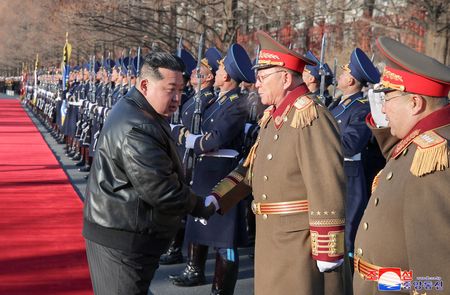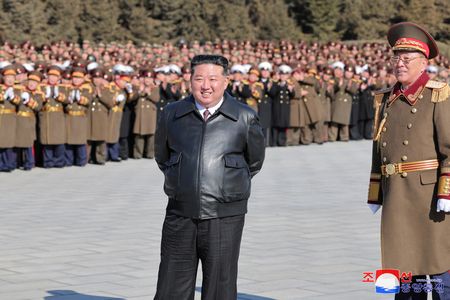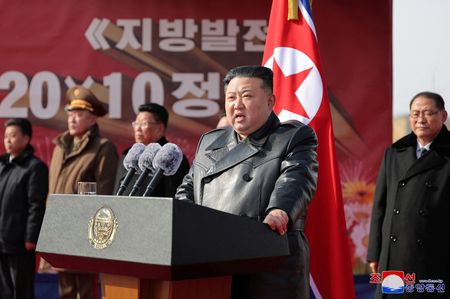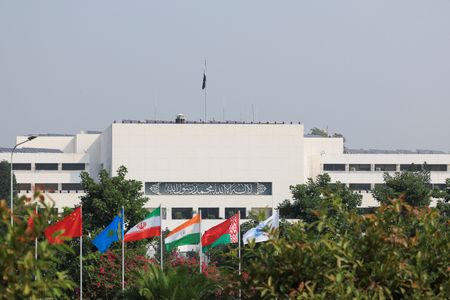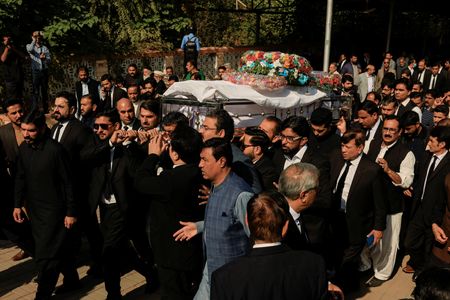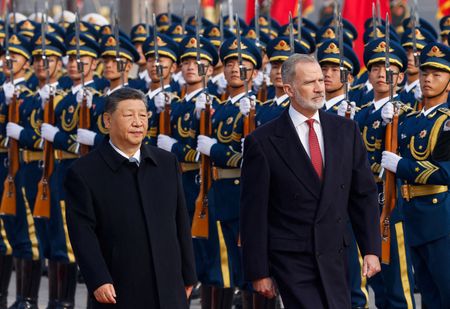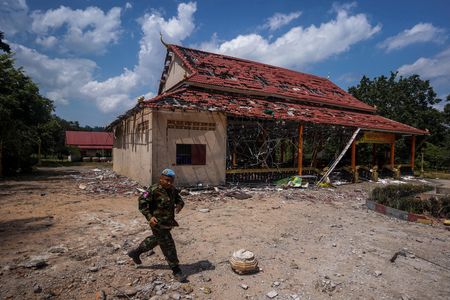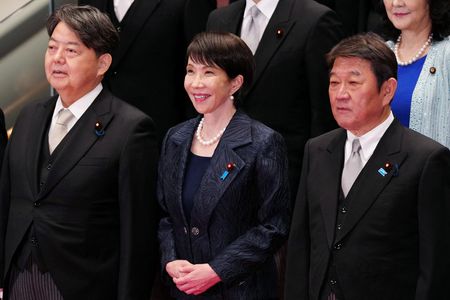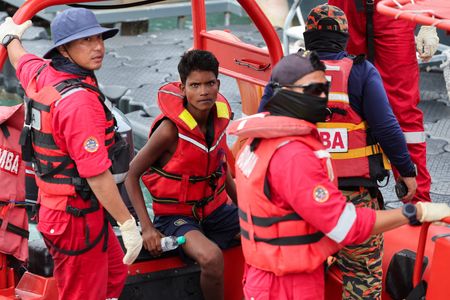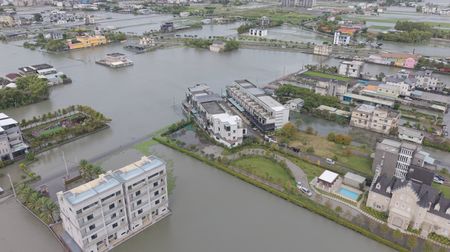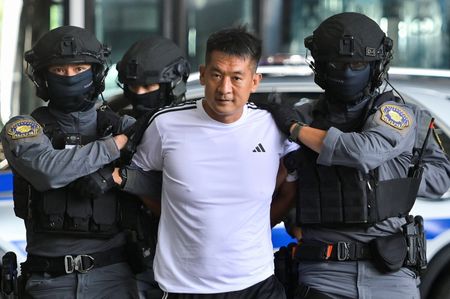SEOUL (Reuters) -North Korean leader Kim Jong Un criticised trilateral military cooperation among the United States, Japan and South Korea for raising tensions in the region and vowed countermeasures, including the further development of nuclear forces.
Kim said U.S. deployments of nuclear strategic assets, war exercises and military cooperation with Japan and South Korea were inviting military imbalance in the region and raising a grave challenge to the security environment, state media KCNA reported on Sunday.
“The DPRK does not want unnecessary tension of the regional situation but will take sustained countermeasures to ensure the regional military balance,” Kim said during a visit to the defence ministry on Saturday to commemorate the founding day of its Army.
DPRK stands for the Democratic People’s Republic of Korea, North Korea’s official name.
U.S. President Donald Trump, after a meeting on Friday with Japanese Prime Minister Shigeru Ishiba, said he would have relations with North Korea, as they expressed concern over its nuclear program.
But during the visit, Kim “clarified once again the unshakable policy of more highly developing the nuclear forces,” according to the report.
On Russia’s war with Ukraine, Kim said: “The army and people of the DPRK will invariably support and encourage the just cause of the Russian army and people to defend their sovereignty, security and territorial integrity in keeping with the spirit of the treaty on the comprehensive strategic partnership between the DPRK and Russia.”
Last month, South Korea said it suspected North Korea of preparing to send more troops to Russia, in addition to about 11,000 soldiers who had been dispatched for the three-year-long war.
In a separate commentary released later on Sunday, North Korea’s KCNA again criticised South Korea’s military activity with the United States this year and warned that aggressive actions would be met by undesired consequences.
“Anyone could easily guess how we would take the fact that they carried out war exercises that were more intense than ever before at a time when diplomacy schedules were being cancelled due to political turmoil,” KCNA said.
(Reporting by Jihoon Lee in Seoul; Editing by Matthew Lewis and Daniel Wallis)

